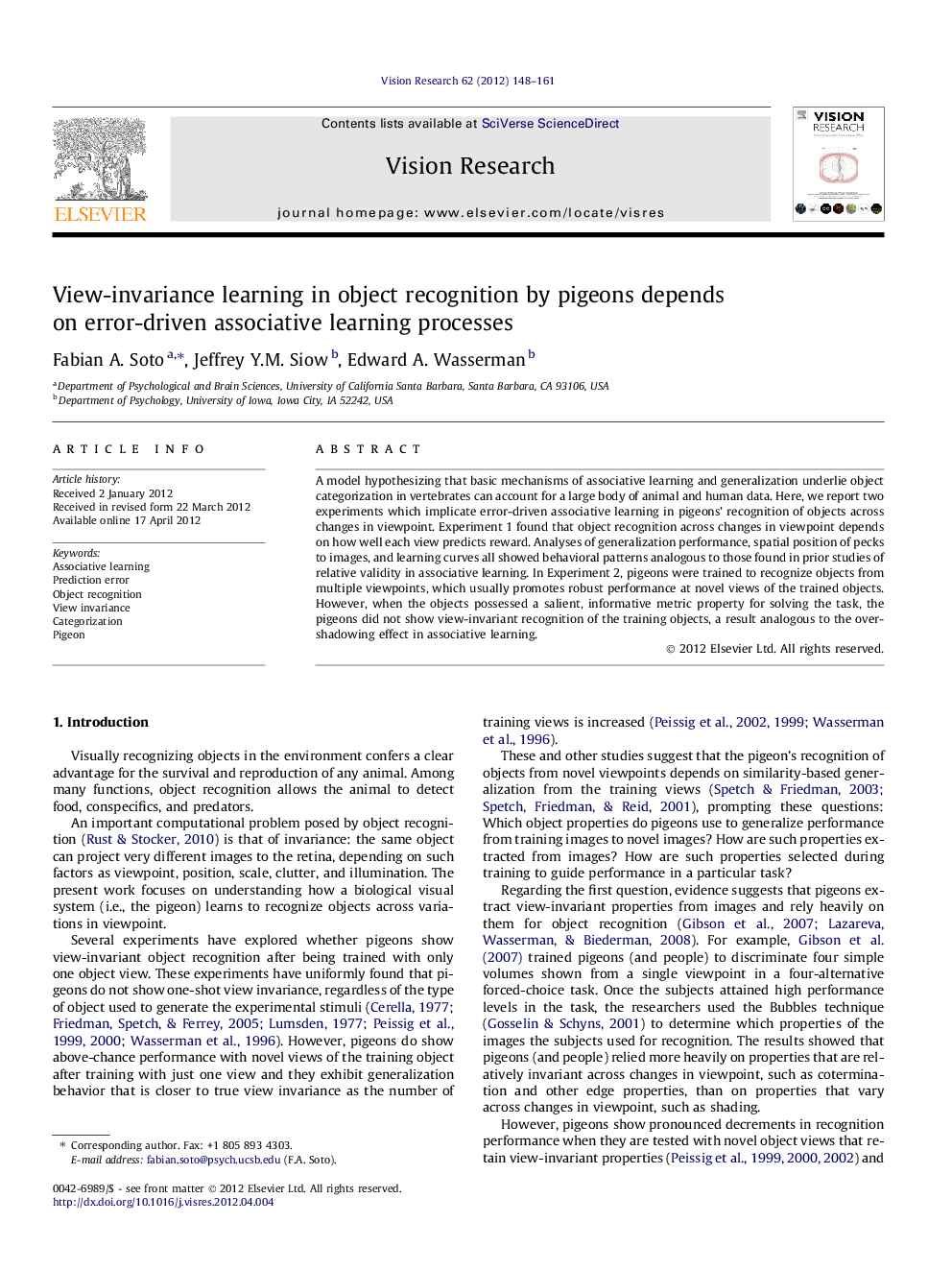| Article ID | Journal | Published Year | Pages | File Type |
|---|---|---|---|---|
| 6203696 | Vision Research | 2012 | 14 Pages |
A model hypothesizing that basic mechanisms of associative learning and generalization underlie object categorization in vertebrates can account for a large body of animal and human data. Here, we report two experiments which implicate error-driven associative learning in pigeons' recognition of objects across changes in viewpoint. Experiment 1 found that object recognition across changes in viewpoint depends on how well each view predicts reward. Analyses of generalization performance, spatial position of pecks to images, and learning curves all showed behavioral patterns analogous to those found in prior studies of relative validity in associative learning. In Experiment 2, pigeons were trained to recognize objects from multiple viewpoints, which usually promotes robust performance at novel views of the trained objects. However, when the objects possessed a salient, informative metric property for solving the task, the pigeons did not show view-invariant recognition of the training objects, a result analogous to the overshadowing effect in associative learning.
⺠Associative mechanisms underlie view-invariance learning by pigeons. ⺠An analog to the relative validity effect was found in object recognition. ⺠An analog to the overshadowing effect was found in object recognition. ⺠The results were predicted by our model of object categorization learning.
